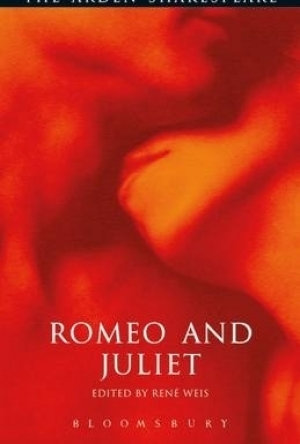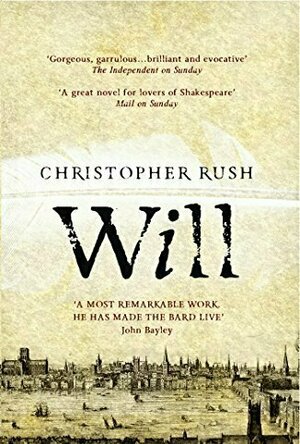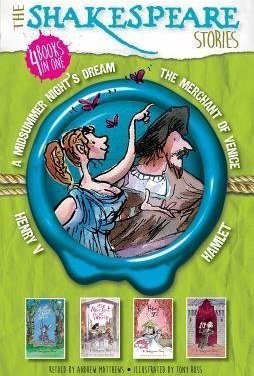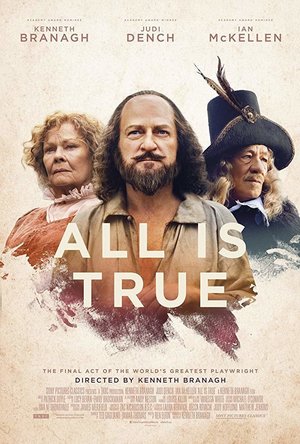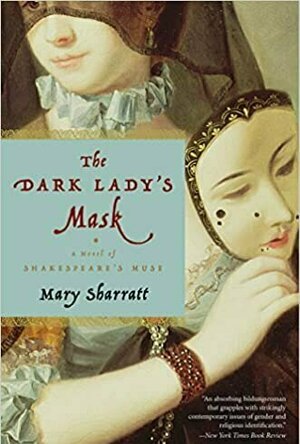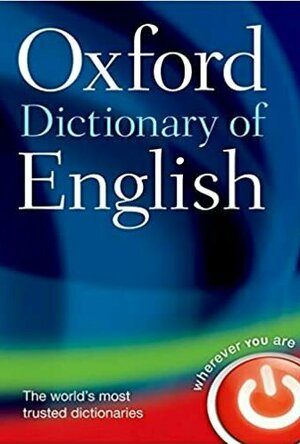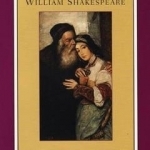Search
Search results
Becs (244 KP) rated Romeo and Juliet in Books
Jan 2, 2020
[b:Romeo and Juliet|18135|Romeo and Juliet|William Shakespeare|https://images.gr-assets.com/books/1327872146s/18135.jpg|3349450] [a:William Shakespeare|947|William Shakespeare|https://images.gr-assets.com/authors/1424313573p2/947.jpg]
The typical love story with family drama and tension but with a twisted ending. William Shakespeare is an excellent writer. As a teenager, Romeo and Juliet was quite difficult to read. But rereading it as an adult, I understood every little sneer and joke that was in each conversation.
The typical love story with family drama and tension but with a twisted ending. William Shakespeare is an excellent writer. As a teenager, Romeo and Juliet was quite difficult to read. But rereading it as an adult, I understood every little sneer and joke that was in each conversation.
The Chocolate Lady (94 KP) rated Will in Books
Oct 7, 2020
In this book, Christopher Rush brings us a fictional autobiography of one of the world's greatest writers ever - William Shakespeare. Read my review of this book here. https://tcl-bookreviews.com/2015/03/24/the-last-of-will-and-his-testament/
Contains spoilers, click to show
The Shakespeare Stories: Henry V, A Midsummer Night's Dream, The Merchant of Venice, Hamlet by Andrew Matthews presents four of William Shakespeare’s famous plays in an easy-to-digest format for kids. Accompanied by Tony Ross’ illustrations, Matthews re-imagines these Shakespearean plays as short stories more akin to classic fairy tales.
Matthews manages to take some of the most plot-heavy and confusing Shakespeare plays and break them down to their most basic elements. The language is easy to follow without lacking intellect or wit, and he stays true to Shakespeare’s concepts and characters. Illustrated short stories for kids are a no-brainer for getting children interested in William Shakespeare, and Matthews was smart to dive into the genre. He isn’t reinventing the wheel, but he is making the wheel accessible to a wide range of audiences.
I like how it has pictures, gives the cast and a quote from the original play. Then it tells the story and finishes up with an explanation of what just happened and some history of Shakespeare and the play.
Matthews manages to take some of the most plot-heavy and confusing Shakespeare plays and break them down to their most basic elements. The language is easy to follow without lacking intellect or wit, and he stays true to Shakespeare’s concepts and characters. Illustrated short stories for kids are a no-brainer for getting children interested in William Shakespeare, and Matthews was smart to dive into the genre. He isn’t reinventing the wheel, but he is making the wheel accessible to a wide range of audiences.
I like how it has pictures, gives the cast and a quote from the original play. Then it tells the story and finishes up with an explanation of what just happened and some history of Shakespeare and the play.
Awix (3310 KP) rated All Is True (2018) in Movies
Feb 14, 2019
Shakespeare bio-pic just about scrapes a 6 despite all the talent involved. William Shakespeare retires to the country, does some gardening, worries about the position of his family, dies (come on, that's not really a spoiler). Main problem is that, as a thing about Shakespeare written by Ben Elton, it seems terrified of being confused with that other thing about Shakespeare written by Ben Elton (the sitcom), and the result is a slow, earnest film with long, static takes and not much in the way of incident.
Like most fiction actually about Shakespeare, it focuses on the one incident in his life with any kind of dramatic potential, namely the death of his son, but the details surrounding this are embroidered to the point where it's arguably taking liberties with the truth. The fact remains that Shakespeare's plays are much more interesting stories than his life was. Decent performances from all concerned, but some of the actors are honestly much too old for the parts they've been cast in (Ian McKellen's character was nearly ten years younger than Shakespeare, not twenty years older).
Like most fiction actually about Shakespeare, it focuses on the one incident in his life with any kind of dramatic potential, namely the death of his son, but the details surrounding this are embroidered to the point where it's arguably taking liberties with the truth. The fact remains that Shakespeare's plays are much more interesting stories than his life was. Decent performances from all concerned, but some of the actors are honestly much too old for the parts they've been cast in (Ian McKellen's character was nearly ten years younger than Shakespeare, not twenty years older).
The Chocolate Lady (94 KP) rated The Dark Lady's Mask in Books
Oct 5, 2020
With all due respect for Sharratt's really nicely written prose, I was unable to finish reading this book. I have a great love of historical fiction, and am willing to accept no small amounts of literary license when it comes to adjusting some facts to fit the story - for example, it is possible that William Shakespeare could have been bi-sexual. However, I was unable to overcome the blatant rewriting of history to suspend belief when, in this novel, William Shakespeare is still an impoverished poet AFTER the death of Christopher Marlowe. This is really too bad, because I had such high hopes for this book. My sincere apologies, and I'm sure other readers will be more forgiving.
KatieLouCreate (162 KP) created a poll
May 29, 2018 (Updated May 29, 2018)
Carrie Preston recommended The Oxford English Dictionary in Books (curated)
Anyone who knows me knows that I am a hardcore Shakespeare fan. One of my bosses at work knows this and let me borrow her copy of this book thinking that it would interest me. Unfortunately, it fell a little flat.
I do not agree with the main argument of this biography: that William Shakespeare was, in fact, only a pen name for Edward de Vere, the Earl of Oxford. No. I do not agree with this claim, like so many other Shakespeare scholars and lovers because the "facts" put forth are just very thinly stretched ideas and concepts that cannot be proven.
This book, instead of pushing me to think about how this fact could even possibly be true, is more about the life of Edward de Vere and how some of the circumstances in his life would be able to loosely connect to the plays Shakespeare had written. In tying in the plays, Anderson thinks he is making a stronger claim for his argument, but is honestly just trying to connect things that are unalike to "prove" what he is thinking. As an English major, I don't really like that way of thinking much.
Most of what he was trying to argue could have been left out and, instead, just have the appendices left in there. In the approximately sixty pages of the four appendices, he stated what over three hundred pages could not. No, I do not agree with the argument he is making, but it seems like it is stronger and more coherent in the appendix.
I want to point out a specific quotation from the Appendix A on page 381 to make a point about this book. It states: The thesis of this book, the "Oxfordian" proposition that Edward de Vere was Shake-speare, is a theory built on circumstantial evidence. There is no single "smoking gun" document that leads one inexorably to the conclusion that de Vere wrote Hamlet, King Lear, the Sonnets, etc." I understand that it is difficult to try to prove a theory that many argue against (myself included), but basing your argument solely on circumstantial evidence is not the way to go. It makes the argument, at least to me, seem less realistic and, in all honesty, difficult to agree with. If you cannot prove someone is guilty solely based on circumstantial evidence, you should not try to prove a complex argument that a famous playwright was not a real person, but, in fact, a pseudonym for another historical figure around the same time.
The "facts" that de Vere's life has similar qualities to the plays written by Shakespeare leading to the thought that de Vere, himself, is Shakespeare is a stretch, and not a convincing one at that.
Overall, I did not enjoy this book and I did not find it convincing at all. It felt more like a history lesson about the background of Edward de Vere rather than any kind of argument towards the idea that he could have been Shakespeare.
In my heart of hearts, I will always believe that William Shakespeare was, in fact, a real man by the name of William Shakespeare, not some made up name for a man who wanted to keep his private life separate from the public.
I do not agree with the main argument of this biography: that William Shakespeare was, in fact, only a pen name for Edward de Vere, the Earl of Oxford. No. I do not agree with this claim, like so many other Shakespeare scholars and lovers because the "facts" put forth are just very thinly stretched ideas and concepts that cannot be proven.
This book, instead of pushing me to think about how this fact could even possibly be true, is more about the life of Edward de Vere and how some of the circumstances in his life would be able to loosely connect to the plays Shakespeare had written. In tying in the plays, Anderson thinks he is making a stronger claim for his argument, but is honestly just trying to connect things that are unalike to "prove" what he is thinking. As an English major, I don't really like that way of thinking much.
Most of what he was trying to argue could have been left out and, instead, just have the appendices left in there. In the approximately sixty pages of the four appendices, he stated what over three hundred pages could not. No, I do not agree with the argument he is making, but it seems like it is stronger and more coherent in the appendix.
I want to point out a specific quotation from the Appendix A on page 381 to make a point about this book. It states: The thesis of this book, the "Oxfordian" proposition that Edward de Vere was Shake-speare, is a theory built on circumstantial evidence. There is no single "smoking gun" document that leads one inexorably to the conclusion that de Vere wrote Hamlet, King Lear, the Sonnets, etc." I understand that it is difficult to try to prove a theory that many argue against (myself included), but basing your argument solely on circumstantial evidence is not the way to go. It makes the argument, at least to me, seem less realistic and, in all honesty, difficult to agree with. If you cannot prove someone is guilty solely based on circumstantial evidence, you should not try to prove a complex argument that a famous playwright was not a real person, but, in fact, a pseudonym for another historical figure around the same time.
The "facts" that de Vere's life has similar qualities to the plays written by Shakespeare leading to the thought that de Vere, himself, is Shakespeare is a stretch, and not a convincing one at that.
Overall, I did not enjoy this book and I did not find it convincing at all. It felt more like a history lesson about the background of Edward de Vere rather than any kind of argument towards the idea that he could have been Shakespeare.
In my heart of hearts, I will always believe that William Shakespeare was, in fact, a real man by the name of William Shakespeare, not some made up name for a man who wanted to keep his private life separate from the public.
Becs (244 KP) rated The Merchant of Venice in Books
Jan 2, 2020
I love William Shakespeare and every one of his plays but The Merchant of Venice was a difficult play for me to get into. I felt like the plot was all over the place but I pushed through it to finish the book. It had its good scenes and its bad ones, most books and plays do.
Would I reread The Merchant of Venice again, probably not.
Is it a good play, it's definitely worth the read because of it being a literary classic.
Would I reread The Merchant of Venice again, probably not.
Is it a good play, it's definitely worth the read because of it being a literary classic.
BookwormMama14 (18 KP) rated Illustrated Stories From Shakespeare in Books
Jan 2, 2019
I recently purchased this book from Usborne and am SO in love with it! I have always had a deep appreciation and fascination with Shakespeare's work. (So much so that one year for Christmas all I wanted was Barnes & Noble's The Complete Works of William Shakespeare.) But I admit that at reading Shakespeare was a challenge when I was younger. Struggling to understand the language, I missed much of what was happening in the storyline. I am thrilled to have found this book for my kids. I thought, if they grow up knowing the stories, then maybe when it comes time to read the original plays, they will have an easier time. So far, my three year old LOVES this book! He has sat through Hamlet and was in high dudgeon that I had to borrow it to write this review. The illustrations are beautiful! And even though all of the plays are written so that young readers can understand them, some of the more famous lines from Shakespeare's works can still be found. I am thoroughly impressed and am so excited to introduce my kids to Shakespeare at a young age. Hoping to nurture and grow their love of literature.
